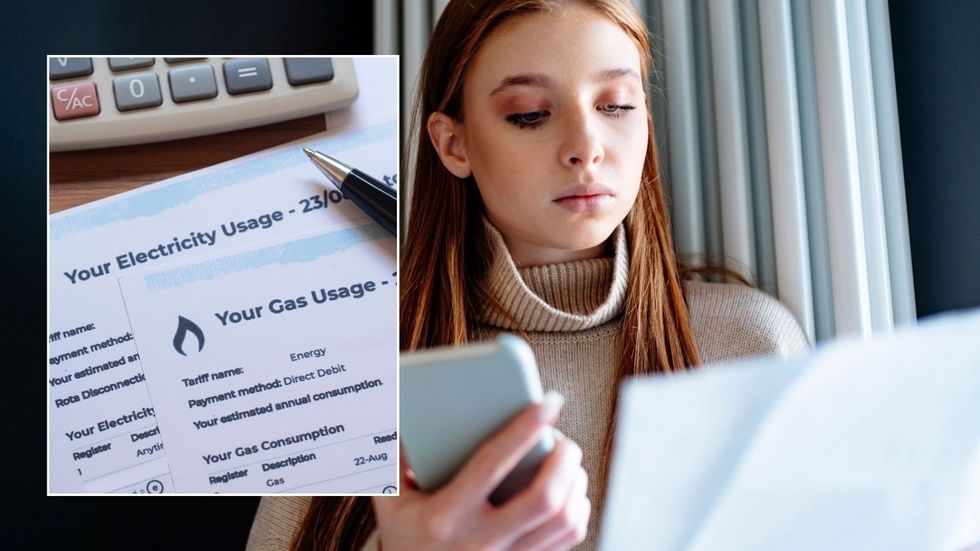Energy bills alert: Thousands of Britons could be eligible for £1k payouts after prepayment meter scandal
Energy bills to fall in July as Ofgem confirms price cap drop |
GB NEWS

Customers of multiple energy firms are in line for compensation after Ofgem's investigation into the impact of forced prepayment meter installations on consumers
Don't Miss
Most Read
Tens of thousands of energy customers are set to receive payouts of up to £1,000 each following a review by regulator Ofgem into the forced fitting of prepayment meters.
The compensation comes after energy companies were found to have inappropriately switched vulnerable customers to prepayment methods without their consent.
Energy firms will pay out over £70million in compensation and financial support to affected customers. Ofgem said the £1,000 payments were specifically for customers who had faced "inappropriate installations" of prepayment meters.
Depending on how eligible customers were treated, they could receive payments of either £40, £250 or £500. Customers do not need to take any action, as compensation will be paid directly into customer accounts.
Energy companies are paying out tens of millions in compensation and financial support after Ofgem found that suppliers "fell short of required standards" in the way they treated customers.

Thousands of customers could be eligible for up to £1,000 in compensation?
| GETTYThe regulator's review covered the period from January 2022 to January 2023, examining how energy firms switched customers who were struggling to pay their bills onto prepayment methods.
Often, vulnerable customers were switched to paying upfront without their agreement after falling behind with their bills. This was done either by remotely changing customers' smart meters to prepay mode, or by entering properties to install new meters.
Tim Jarvis, Ofgem's director general of markets, said: "Our priority has been to put things right for those who weren't treated properly, and ensure we don't see bad practice repeated."
The scandal emerged two years ago at the peak of the cost of living crisis, when energy prices spiked after Russia's invasion of Ukraine. It was revealed that energy firms were switching people who were struggling to pay their bills onto prepayment methods without their agreement.
Do you have a money story you’d like to share? Get in touch by emailing money@gbnews.uk.
 Britons are looking for energy bill support | Households warned faulty smart meters may leave 'large unexpected bills
Britons are looking for energy bill support | Households warned faulty smart meters may leave 'large unexpected billsThere was particular outcry when agents for British Gas were found to have forced their way into the homes of vulnerable people. British Gas agents were observed using court warrants to demand entry into the homes of indebted customers in order to force them onto prepayment meters.
Ofgem responded by suspending all forced installations and launching a review of the practice. The revelations of the practice, detailed in a newspaper investigation in early 2023, sparked outrage and led to the practice being suspended.
The nearly £74million Ofgem announced applies to customers at eight suppliers: Scottish Power, EDF, E.ON, Octopus, Utility Warehouse, Good Energy, Tru Energy and Ecotricity.
These firms had already disbursed £55 million in financial support, with another £5.6million to be paid in compensation to 40,000 affected customers. A further £13million will be used to write off debt for customers who had a forced meter installation.
The debt of customers who had a forced meter installation would be written off with this additional funding. Enforcement investigations are continuing for British Gas, Utilita and Ovo, representing tens of thousands more customers.
These ongoing investigations could result in additional compensation payments for affected customers at these three major energy suppliers.
LATEST DEVELOPMENTS:

Ofgem is taking action after the scandal
| GETTYA new code of practice is now in place with stricter conditions that companies must meet if they want to install prepayment meters without customer consent. Companies who break the rules will face enforcement action and unlimited fines.
Firms are only permitted to force the installation of prepayment meters unless a resident is over 75, or has children under the age of two, or has a terminal illness. Ofgem has also demanded action plans from every supplier, which are being scrutinised on an ongoing basis.
Dhara Vyas, chief executive of Energy UK, said: "Involuntary installations have been a last - but necessary - resort for cases where repeated attempts to address debt with the customer through other means have been unsuccessful.
"It's bad for customers to fall further and further into arrears, and bad debt ultimately drives up the prices that is paid by all customers."
More From GB News











